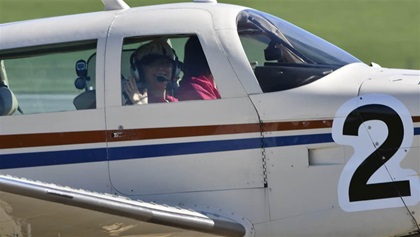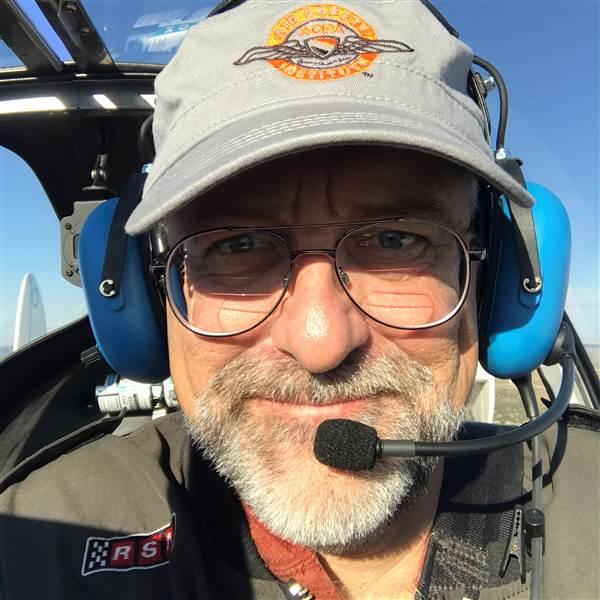
Photography by David Tulis
 You’ve put a lot of time, energy, and capital into your ticket; and while that plastic card in your hand is the official award, you really deserve a trophy for all your effort. Luckily, now that you have your wings, it’s a simple matter to go out and win one. At an air race.
You’ve put a lot of time, energy, and capital into your ticket; and while that plastic card in your hand is the official award, you really deserve a trophy for all your effort. Luckily, now that you have your wings, it’s a simple matter to go out and win one. At an air race.
No, you don’t need thousands of hours. No, you don’t need a screaming warbird. No, you don’t need deep-pocket sponsors. I’m not talking Reno here. There are dozens of air races around the country each year open to everyday general aviation pilots. Heck, I even know a guy who won a handsome trophy racing a Piper J–3 Cub—a Cub that had to be hand propped, at that.
What kind of race plane is that?
One that was flown marginally faster than the other Cub in the race. Any airplane can be a race plane, and any pilot an air racer. Air racing provides excitement, camaraderie, skill enhancement, and a link to aviation’s Golden Age. Plus, a great many of today’s air races raise money for charities.
Sounds great, but is it safe? To you and your airplane, you bet. The vast majority of air races are non-waivered—meaning that they follow the federal aviation regulations—and are flown daylight VFR.
The only real danger is that you’ll become addicted to the sport.
William E. Dubois is an aviation writer, world speed record holder, and two-time National Champion air racer. He teaches Rusty Pilots seminars for AOPA and blogs his personal flying adventures at PlaneTales.net.
Ask AOPA
Light Sport lowdown
Private pilot privileges versus sport pilot privileges
By Craig Brown
Q: I own an Aeronca Champ, model 7AC, and hold a sport pilot certificate. Am I permitted to perform preventive maintenance, such as oil changes, on my Champ?
A: No, you are not. You have no preventive maintenance privileges with this airplane. Although the Champ meets the criteria of—and can be flown as—a Light Sport airplane, it is certified in the Normal category. And since you are not a private pilot, you cannot perform nor approve for return to service any preventive maintenance.
Like many other models, the Aeronca Champ was identified in 2004 as an airplane that meets all the criteria of the Light Sport rule (1,320 pounds, two seats, fixed gear, 120 knots VNE); however, it is not issued a special airworthiness certificate in the Light Sport category. In other words, it looks like a Light Sport airplane, and can be flown under the sport pilot regulations, but it is not a Light Sport airplane. This concept is important to understand. The details are in FAR 43.3 and 43.7.
Sport pilots do have the privilege of performing preventive maintenance on Light Sport aircraft they own or operate. Private pilots have the privilege of performing preventive maintenance on aircraft they own or operate, including Light Sport aircraft. However, sport pilots have no preventive maintenance privileges for aircraft other than Light Sport aircraft. This means that an owner of a certificated Normal category airplane, holding a sport pilot certificate, has no authority to perform any preventive maintenance on his or her aircraft.
The regulations do, however, permit owners to perform any type of maintenance under the supervision of an A&P mechanic. In this case, that would include preventive maintenance. You can do that oil change, but your work must be supervised and endorsed by an A&P mechanic.
Contact AOPA’s Pilot Information Center for more information at 800-872-2672 or [email protected].
Craig Brown is a senior aviation technical specialist in the AOPA Pilot Information Center.



